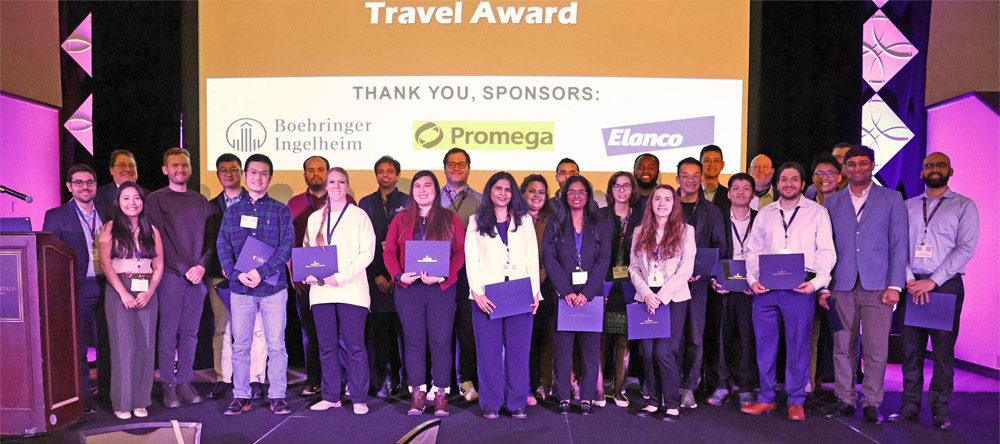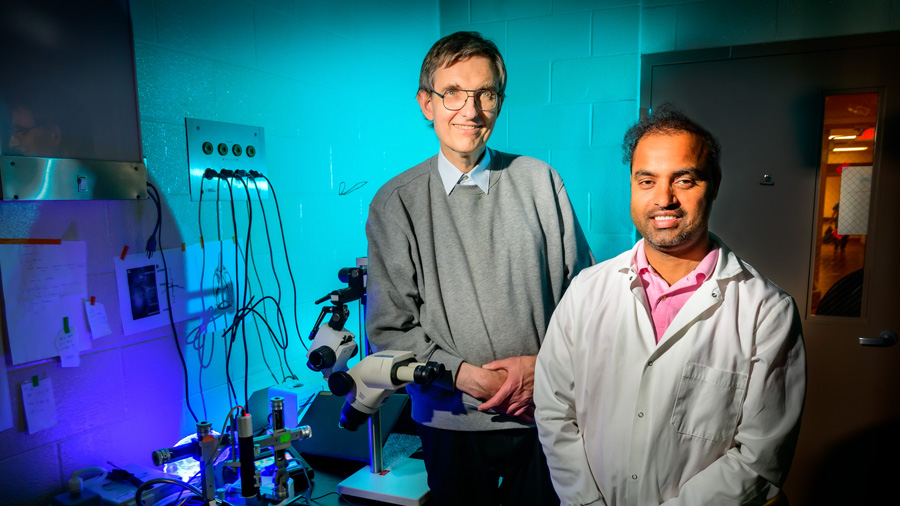What is your academic background? (Where did you get your undergraduate/other degrees?)
I received my bachelors in Cellular Molecular Biology at California State University Dominguez Hills in 2019 and I am currently a PhD student in the Department of Pathobiology.
How did you become interested in your specific field?
I first become interested in research when I was a junior in high school as I was part of a program that exposed students to biomedical research early on. That led me to pursue my degree in biology. While as an undergrad I joined a cancer research lab, I really enjoyed working on chemoresistance and drug discovery that I decided to continue my studies. For my graduate studies I was interested in infectious diseases and drug validation/discovery.
Why did you choose the University of Illinois College of Veterinary Medicine to pursue this degree?
I was interested in infectious diseases and drug discovery and when I was invited to visit the Department of Pathobiology, I was amazed at all the amazing work in infectious diseases that was taking place here. After my visit I became interested in the Vinayak lab (where I am current at) and the research they were doing.
What is your current research project?
My research involves the study of the protozoan parasite Cryptosporidium parvum, a leading diarrheal pathogen in children <5 years, immunocompromised individuals, and neonatal calves. There are currently no effective drugs or vaccines available to treat cryptosporidiosis, the disease caused by C. parvum in humans. The only FDA approved drug, Nitazoxanide, which holds no benefit against immunocompromised individuals or malnourished children.
In the Vinayak lab we are particularly interested in a group of calcium dependent proteins (CDPKs) that regulate vital processes in other apicomplexan parasites. CDPKs have become an attractive drug target as they are not found in humans. With the use of molecular/genetic tools and a robust mouse model our goal is to decipher the role of CDPKs in C. parvum, and to understand the basic biology of this diarrheal pathogen, and to develop novel therapeutics for cryptosporidiosis.
In my current project we are targeting the CDPK5 to study its role in C. parvum development. Using a CRISPR/Cas9 strategy we generated parasites with a hemagglutinin epitope tag (CDPK5-HA). Super-resolution microscopy of the CDPK5-HA parasites revealed that this kinase is expressed during the sexual stage of the parasite cycle, with expression limited to the male gametocytes, indicating the role of this kinase in parasite development. We then generated parasites with the cdpk5 gene deleted (CDPK5-KO) by a direct gene-knockout strategy and found that this gene is dispensable for C. parvum. However, deletion of the cdpk5 resulted in decreased infectivity, and reduction in oocyst shedding in the C. parvum immunocompromised mouse model of infection.
What impact do you think your research could have on society?
It will help understand the biology and virulence mechanisms of the parasite, as well as the development of effective treatments to alleviate the burden of C. parvum in young child and neonatal calves.
What has been most beneficial to you in completing your studies at the University of Illinois College of Veterinary Medicine?
I would say the most beneficial to me has been how much I’ve learn and having an amazing mentor guiding me. Also, I really enjoy learning about my peer’s research and the University of Illinois College of Veterinary Medicine makes that possible.
What are your passions outside of research?
I really enjoy learning how to play the ukulele on my free time.




